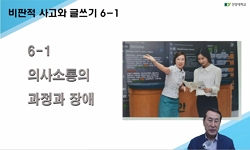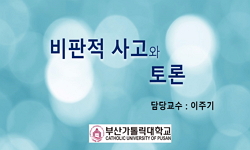The purpose of this study is to analyze the writing activities in six species of high school science textbooks and to provide basic data to explore the direction of science writing class. Analytical standards on writings systems are in aspects such as...
http://chineseinput.net/에서 pinyin(병음)방식으로 중국어를 변환할 수 있습니다.
변환된 중국어를 복사하여 사용하시면 됩니다.
- 中文 을 입력하시려면 zhongwen을 입력하시고 space를누르시면됩니다.
- 北京 을 입력하시려면 beijing을 입력하시고 space를 누르시면 됩니다.

2009 개정 고등학교 과학교과서의 과학글쓰기 활동 분석 : 글쓰기 유형, 형태, 과학적 소양, 비판적 사고를 중심으로 = Analysis of the Science Writing Activities in the Science Textbooks of the 2009 Revised Curriculum: Focused on Writing Type, Form, Scientific Literacy, Critical Thinking
한글로보기https://www.riss.kr/link?id=A100181313
- 저자
- 발행기관
- 학술지명
- 권호사항
-
발행연도
2013
-
작성언어
-
- 주제어
-
KDC
400
-
등재정보
KCI등재
-
자료형태
학술저널
- 발행기관 URL
-
수록면
119-134(16쪽)
- DOI식별코드
- 제공처
-
0
상세조회 -
0
다운로드
부가정보
다국어 초록 (Multilingual Abstract)
The purpose of this study is to analyze the writing activities in six species of high school science textbooks and to provide basic data to explore the direction of science writing class. Analytical standards on writings systems are in aspects such as writing type, form and the supplementary materials. Analytical standards on science education goals are in aspects such as scientific literacy and critical thinking. In terms of writings systems, there are 320 science writings in textbooks. They are significantly different from publisher and section. As a result of writing type; there are 256(80%) explanatory writings, 46(14%) critical writings, and 18(6%) creative writings. Therefore, the results show a bias towards explanatory writing. As a result of writing form; there are 138(43%) completed forms, 111(35%) recognition-checking forms, and 71(22%) research-practice forms. Completed form and recognition-checking form are both considerable parts of the total. So, scientific writing education is still in a system that focuses around recognition and memorization. In terms of science education goals, the result of scientific literacy emphasized in science writing is as followed. 158(49%) is of the scientific knowledge, 116(36%) is of STS, and 46(14%) is of the processes of science. Thus the results are concentrated in the dimension of the scientific knowledge. However, it does show a significant difference depending on the section. Different dimensions of scientific literacy were able to highlight depending on writing topic. As a result of critical thinking, emphasized in scientific writing; 254(79%) are of analysis, 86(27%) are of inference, 54(17%) are of evaluation, and 8(2.5%) are of uncritical cases. Once again the results have a bias. Scientific writing education has the potential to promote critical thinking because the various critical thinking skills high highlight depending on topic, writing type, form, supplementary materials, and the scientific literacy.
동일학술지(권/호) 다른 논문
-
과학교사의 자기 효능감과 학생 통제관 수준에 따른 일반수업과 영재수업에서의 스케폴딩 유형 분석
- 韓國生物敎育學會
- 김동렬
- 2013
- KCI등재
-
새로운 학습 소재 "미소종 패류"를 활용한 탐구 수업 프로그램의 개발
- 韓國生物敎育學會
- 최영미
- 2013
- KCI등재
-
실생활 소재를 이용한 중학생 생물 탐구 실험 모듈의 온라인 및 오프라인 적용 효과
- 韓國生物敎育學會
- 유상근
- 2013
- KCI등재
-
지속가능발전교육을 위한 초등학생용 애니메이션 기반 생물자원 학습프로그램의 학습효과
- 韓國生物敎育學會
- 손정희
- 2013
- KCI등재




 KCI
KCI KISS
KISS





